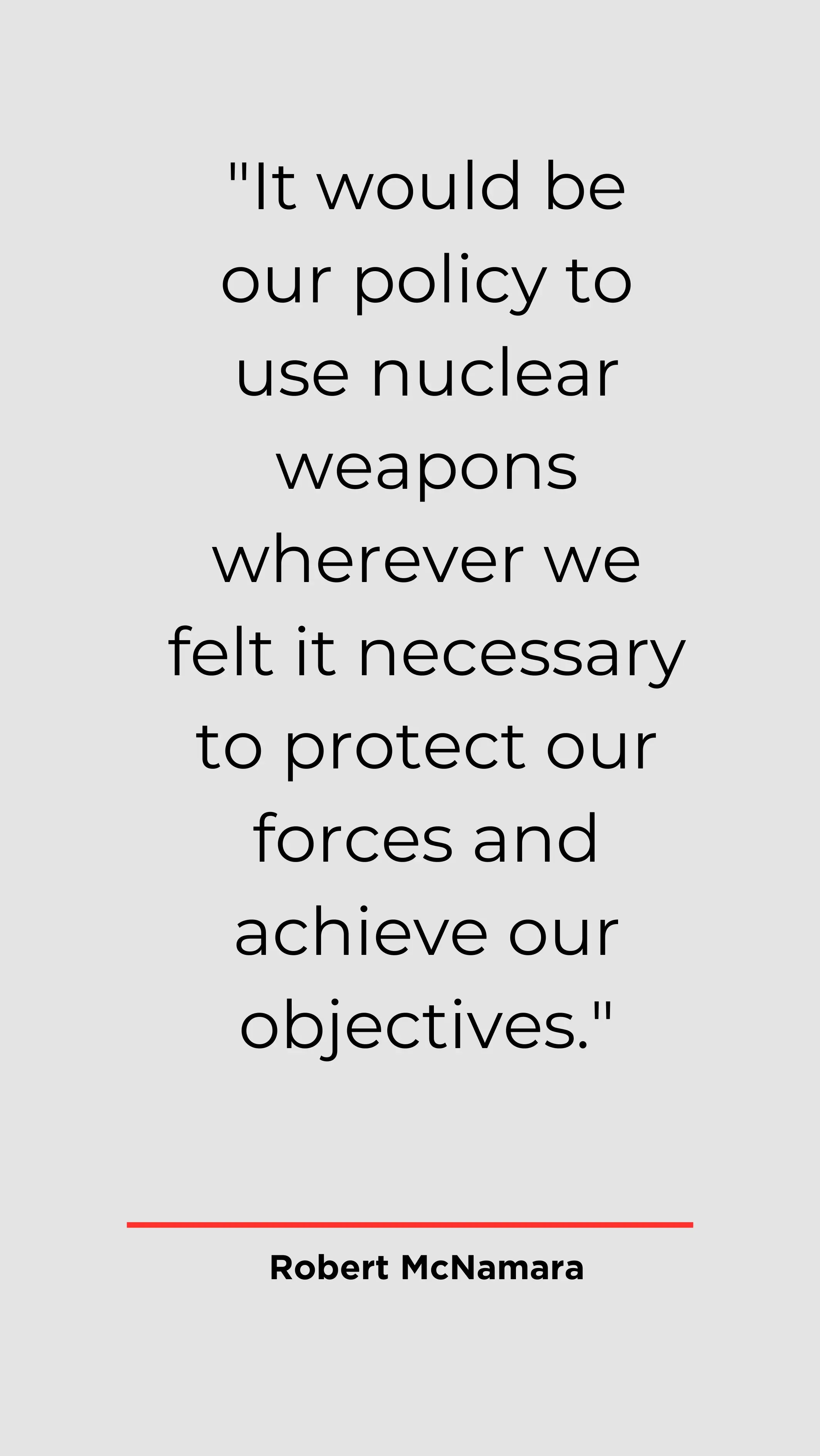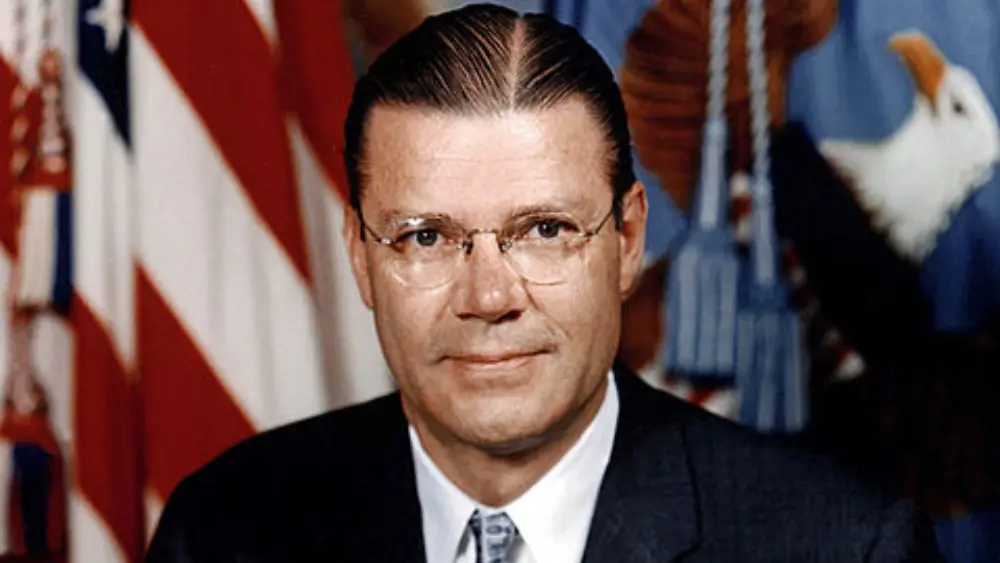Robert Strange McNamara, born on June 9, 1916, in San Francisco, California, was one of the most consequential figures in modern American history. With a career that spanned both corporate leadership and high-stakes government service, McNamara left a lasting imprint on national defense strategy, economic development, and the complex moral terrain of war. He is perhaps best known for his tenure as the U.S. Secretary of Defense during the Cold War, serving under Presidents John F. Kennedy and Lyndon B. Johnson. However, his life story extends far beyond his government service, encompassing business innovation, international economic policy, and a later-life reckoning with the consequences of his decisions.
Early Life and Academic Foundations
Robert McNamara’s early years were defined by a strong academic orientation and a drive for excellence. Raised in a middle-class family, he earned a scholarship to the University of California, Berkeley, where he studied economics and philosophy. His education at Berkeley sharpened his analytical abilities and deepened his understanding of systems thinking, a skill set that would define his later approach to management and policy.
After completing his undergraduate degree, McNamara was accepted to Harvard Business School, where he earned his MBA with distinction. His time at Harvard was formative, equipping him with a pragmatic understanding of organizational behavior, financial structures, and operational strategy. Upon graduating, he briefly worked as an instructor at Harvard before World War II altered his career path.
World War II and the Emergence of a Strategic Mind
The outbreak of World War II saw McNamara join the U.S. Army Air Forces, where he applied his business acumen to military operations. His role involved conducting statistical analyses to improve the performance and safety of bomber missions. McNamara and his colleagues used empirical data to identify patterns and optimize operations, a groundbreaking approach at the time.
He significantly improved the efficiency of bombing raids and showed how data-driven decision-making applies to life-and-death scenarios. It was during this period that McNamara’s belief in the power of numbers and rational systems was solidified—a belief that would guide his future roles in both business and government.
Revolutionizing Ford Motor Company
After the war, McNamara returned to civilian life and joined the Ford Motor Company in 1946. He was one of the “Whiz Kids,” a group of ten analysts recruited by Ford to modernize the company’s operations. These men, many of whom had served in the military, brought a methodical, analytical approach to business management.
McNamara rose swiftly through the ranks, gaining a reputation for his emphasis on efficiency, quality control, and customer-focused innovation. He helped drive Ford’s postwar resurgence, and in 1960, the company appointed him as its first non-family president. Though his tenure at the top was brief, it was historic. Within weeks of assuming the role, he was tapped by President-elect John F. Kennedy for a much more complex challenge: leading the Pentagon.
Secretary of Defense: Reshaping Military Doctrine
Robert McNamara took the oath of office as Secretary of Defense in 1961, ushering in a new era of modern technocratic governance that prioritized empirical analysis and strategic calculation over ideology. At the Pentagon, McNamara quickly went to work overhauling military strategy and organization.
One of his most significant contributions was replacing the doctrine of “massive retaliation” with the more flexible “graduated response” or “flexible response” strategy. This allowed the United States to respond to threats with an appropriate level of force rather than defaulting to the threat of full-scale nuclear war. It was a monumental shift that acknowledged the complexity of Cold War conflicts, particularly those involving proxy wars and regional instability.
McNamara also pushed for the modernization of the armed forces, implementing cost-control measures and technological advancements. He introduced systems analysis into defense planning, emphasizing data collection, risk assessment, and accountability. While his approach improved efficiency in many areas, it also sparked criticism from military officials who felt that warfare could not be reduced to numbers alone.
The Cuban Missile Crisis: A Test of Leadership
McNamara’s leadership was tested profoundly during the Cuban Missile Crisis in October 1962. As Soviet nuclear missiles were discovered in Cuba, just 90 miles off the U.S. coast, the world braced for a possible nuclear confrontation. McNamara played a key advisory role in the Kennedy administration’s response, advocating for a naval blockade over immediate military strikes.
His preference for a measured, strategic approach helped avoid a catastrophic war. The resolution of the crisis—through secret negotiations that led to the removal of Soviet missiles from Cuba and U.S. missiles from Turkey—was a triumph of diplomacy and level-headed judgment. McNamara’s calm demeanor and clear logic during this time earned him respect both within the government and among international observers.
The Vietnam War: A Tarnished Legacy
Despite successes elsewhere, McNamara’s legacy remains heavily intertwined with the Vietnam War—a conflict that overshadowed much of his tenure. Initially a strong advocate for American involvement, McNamara believed that applying military force in conjunction with socio-economic development could halt the spread of communism in Southeast Asia.
Under his direction, the U.S. escalated its military presence in Vietnam, deploying hundreds of thousands of troops. McNamara relied on metrics such as body counts, bombing tonnage, and territory secured to assess progress. However, these indicators failed to capture the complex political and cultural dynamics at play. As the war dragged on and casualties mounted, it became evident that the United States was caught in a quagmire with no clear path to victory.
By the mid-1960s, McNamara began to privately question the war’s trajectory. Despite growing doubts, he continued to publicly support the war effort—a duality that would haunt him later in life. In 1968, with pressure mounting and public opinion shifting, McNamara stepped down from his position, concluding one of the most controversial chapters of his career.

A New Mission at the World Bank
After leaving the Department of Defense, McNamara took over as President of the World Bank, a position he held for 13 years. At the World Bank, he redirected his focus from military strategy to global development and poverty reduction. He sought to make the institution more responsive to the needs of developing nations, increasing funding for education, healthcare, infrastructure, and rural development projects.
McNamara championed the idea that economic development could help prevent future conflicts—a marked contrast to the military-centric strategies of his past. He dramatically expanded the World Bank’s lending portfolio, introduced new policies for environmental sustainability, and emphasized the importance of addressing inequality on a global scale.
Though his efforts were not without criticism—particularly from those who questioned the long-term effects of debt-financed development—his leadership marked a transformative era for the institution. He applied many of the same managerial techniques he had used at Ford and the Pentagon but did so in pursuit of human development and social progress.
Reflection and Redemption
In his later years, McNamara engaged in a public reckoning with his role in the Vietnam War. His 1995 memoir, In Retrospect: The Tragedy and Lessons of Vietnam, was both a confession and a critique. He acknowledged that many of the assumptions underlying U.S. involvement in Vietnam were flawed and admitted that he and other policymakers failed to understand the cultural and political realities of the region.
People met this act of reflection with mixed reactions. While some praised his honesty and courage in confronting his past, others saw it as too little, too late—especially for the families of those who had lost loved ones in the war. Still, his willingness to engage with the moral dimensions of leadership and policy choices offered a rare glimpse into the burdens of high office.
Later, in the 2003 documentary The Fog of War, McNamara further delved into the complexities of decision-making in times of conflict. He outlined what he saw as critical lessons for leaders, including the importance of empathy, the limitations of rationality, and the unpredictable consequences of war.
Enduring Influence and Final Years
Robert McNamara passed away on July 6, 2009, at the age of 93. His legacy remains one of deep complexity. To some, he was a brilliant strategist and reformer who brought structure and innovation to government institutions. Others saw him as a symbol of technocratic hubris, believing he could win wars with spreadsheets and simulations.
Nevertheless, his life story is a compelling narrative of ambition, intellect, power, and remorse. McNamara’s career illustrates how even the most well-intentioned decisions can have far-reaching and unintended consequences. His later efforts to advocate for peace, economic justice, and introspection reflect a journey marked not just by achievement but by growth and humility.
Conclusion
Robert McNamara was a man of paradoxes: a war planner who later championed peace, a numbers-driven executive who came to understand the value of human judgment, and a public figure who evolved into a reflective elder statesman. His career offers lessons not only in leadership and governance but also in accountability and moral courage. As history continues to assess his impact, McNamara stands as a figure who dared to confront the consequences of his own choices—and who ultimately sought to contribute to a more thoughtful and just world.








